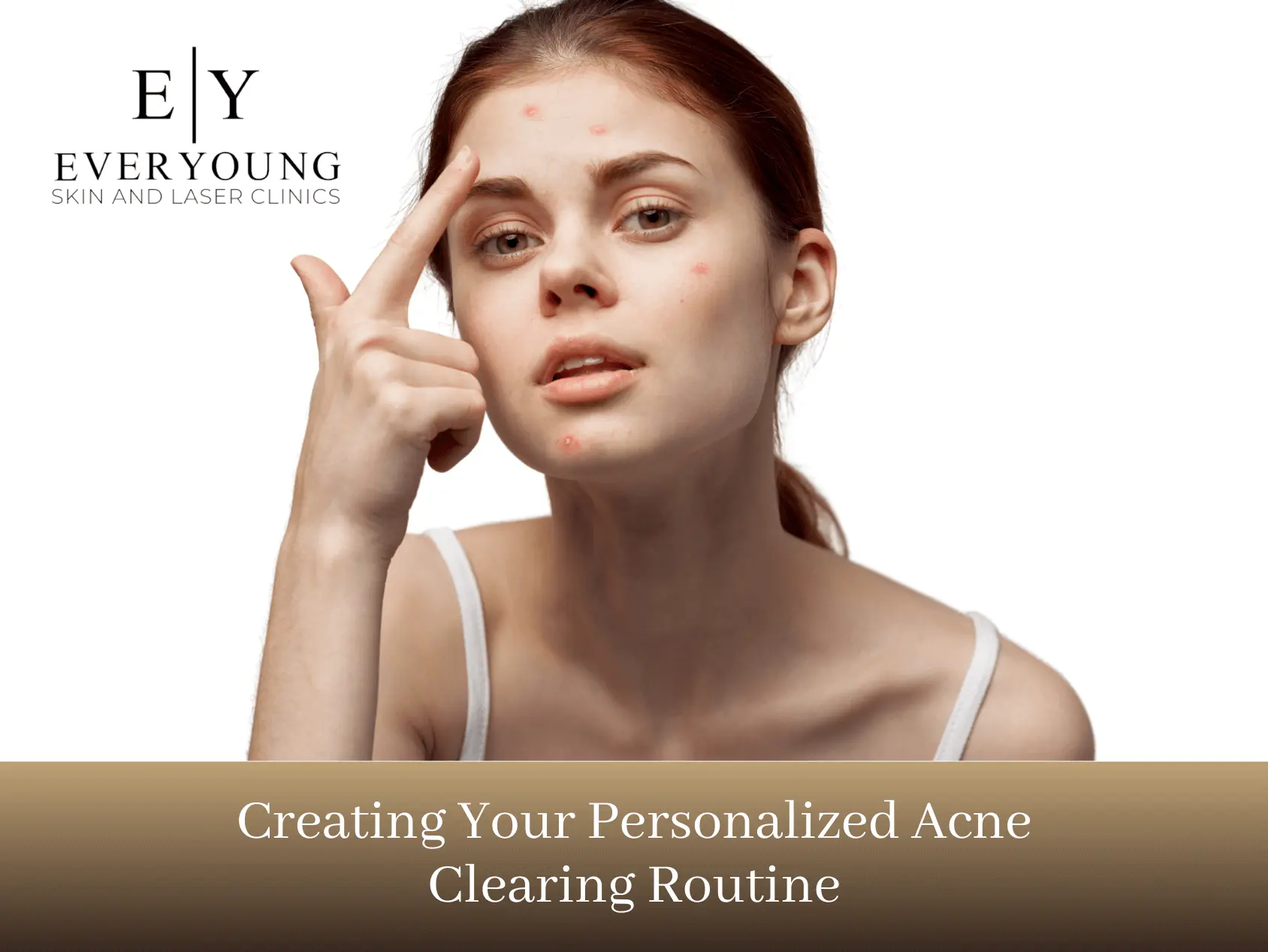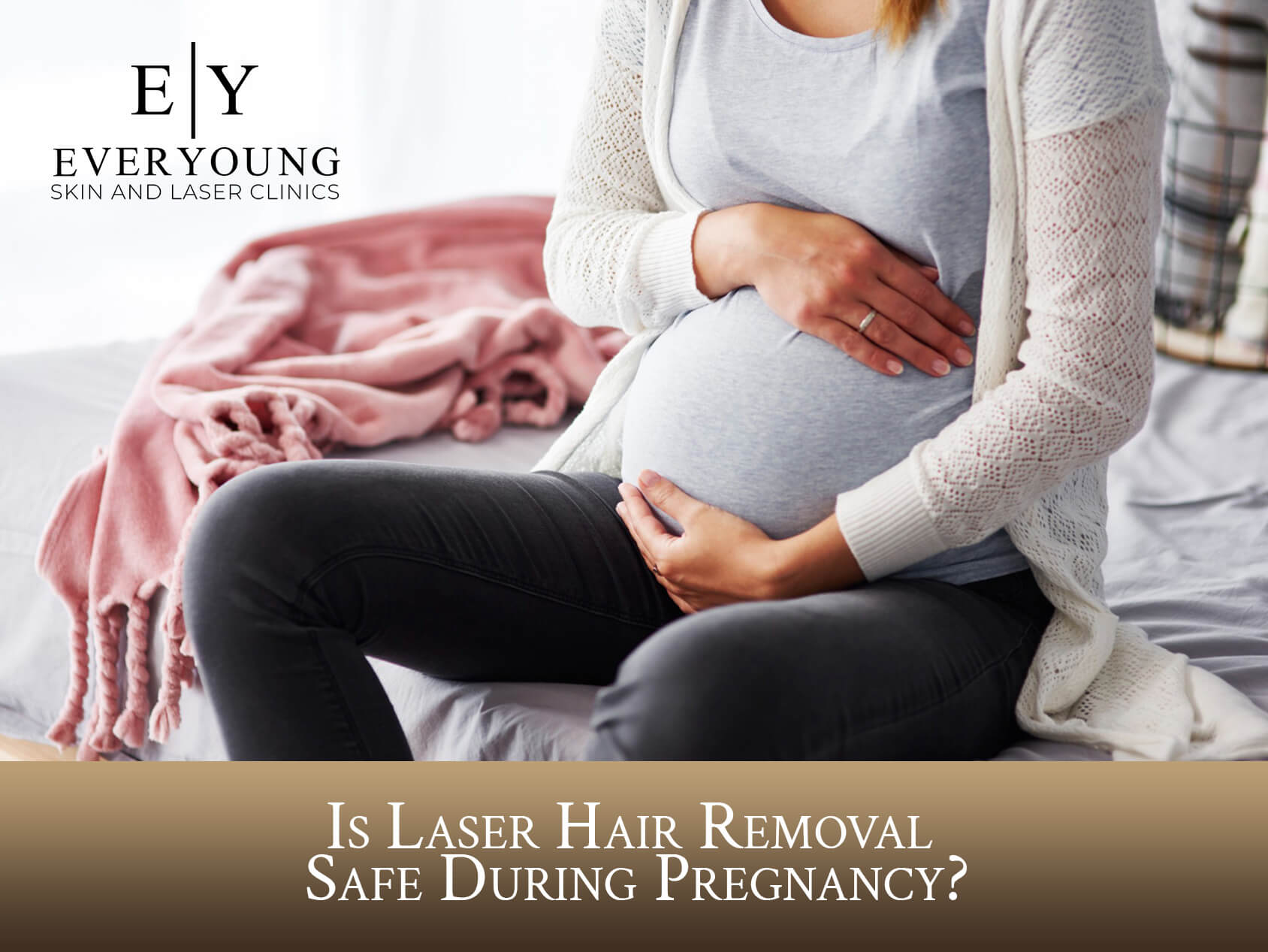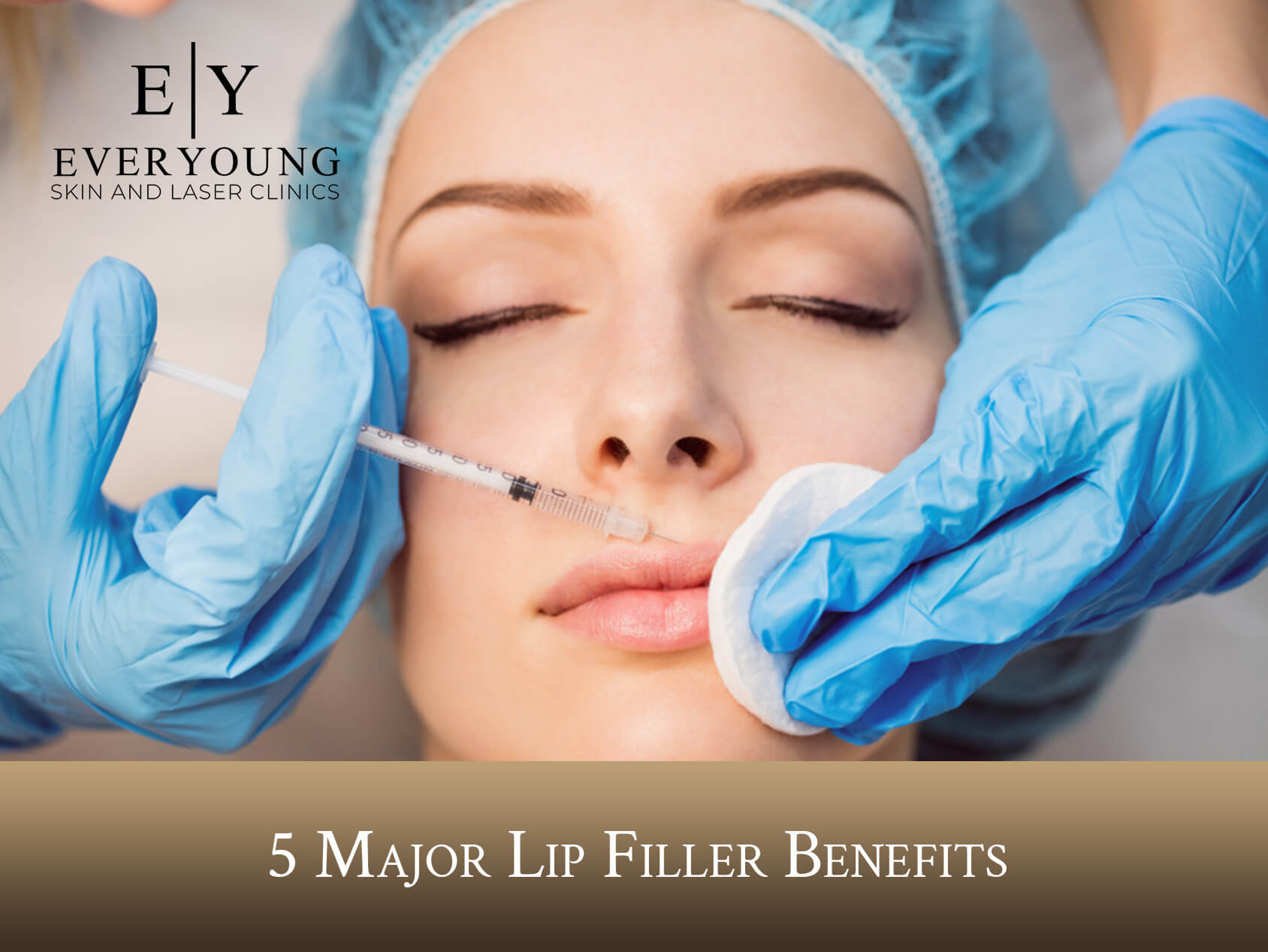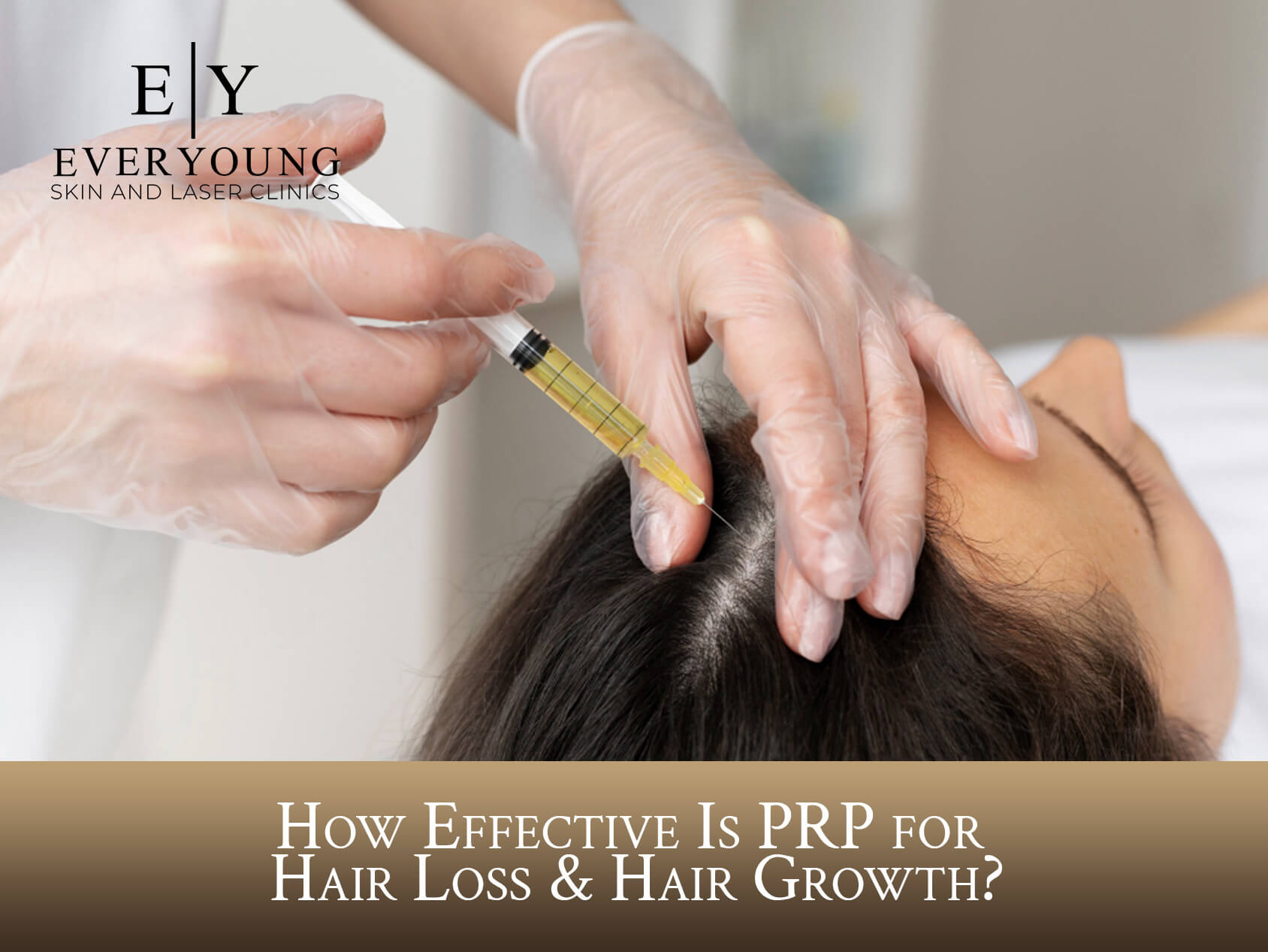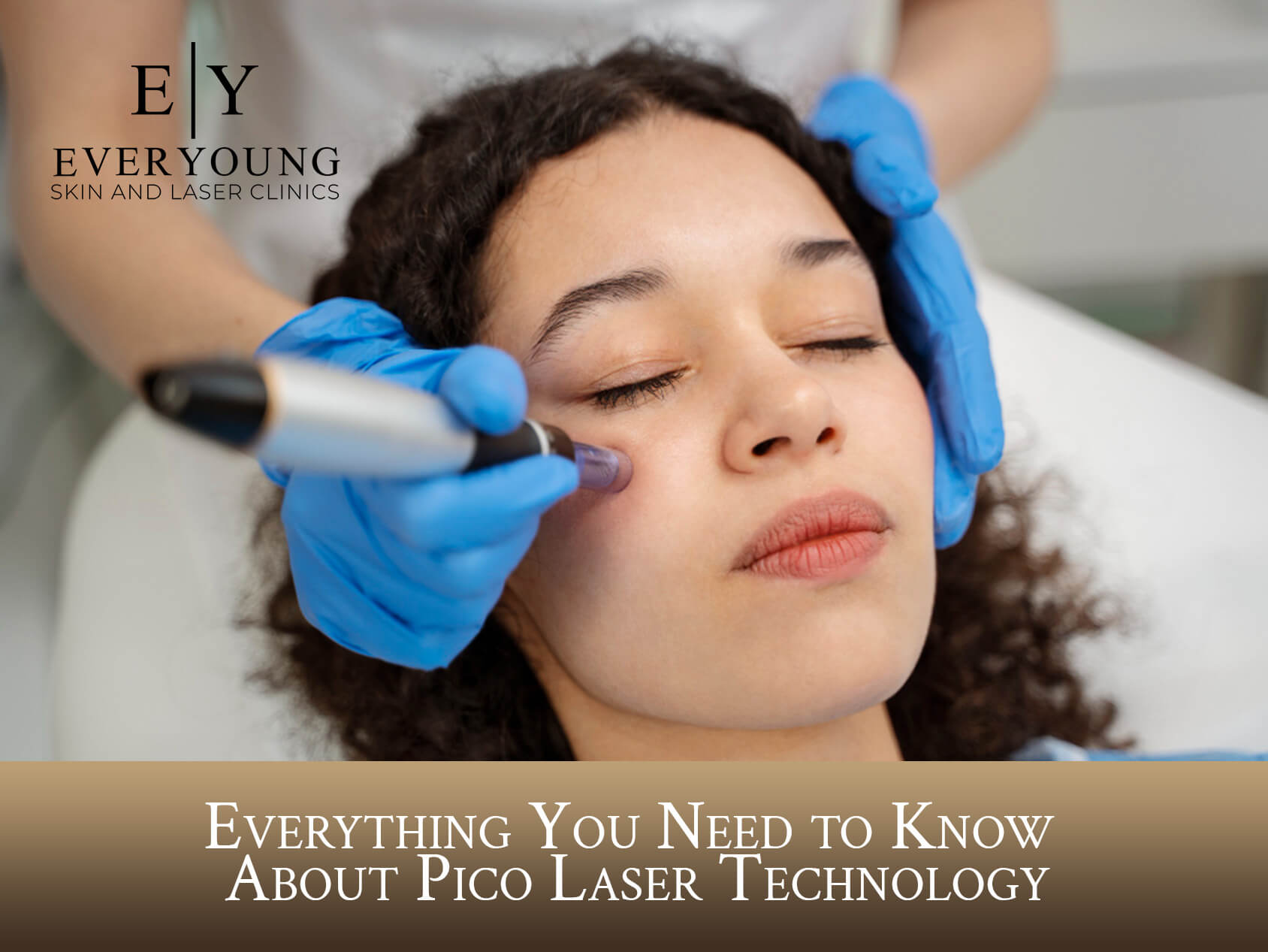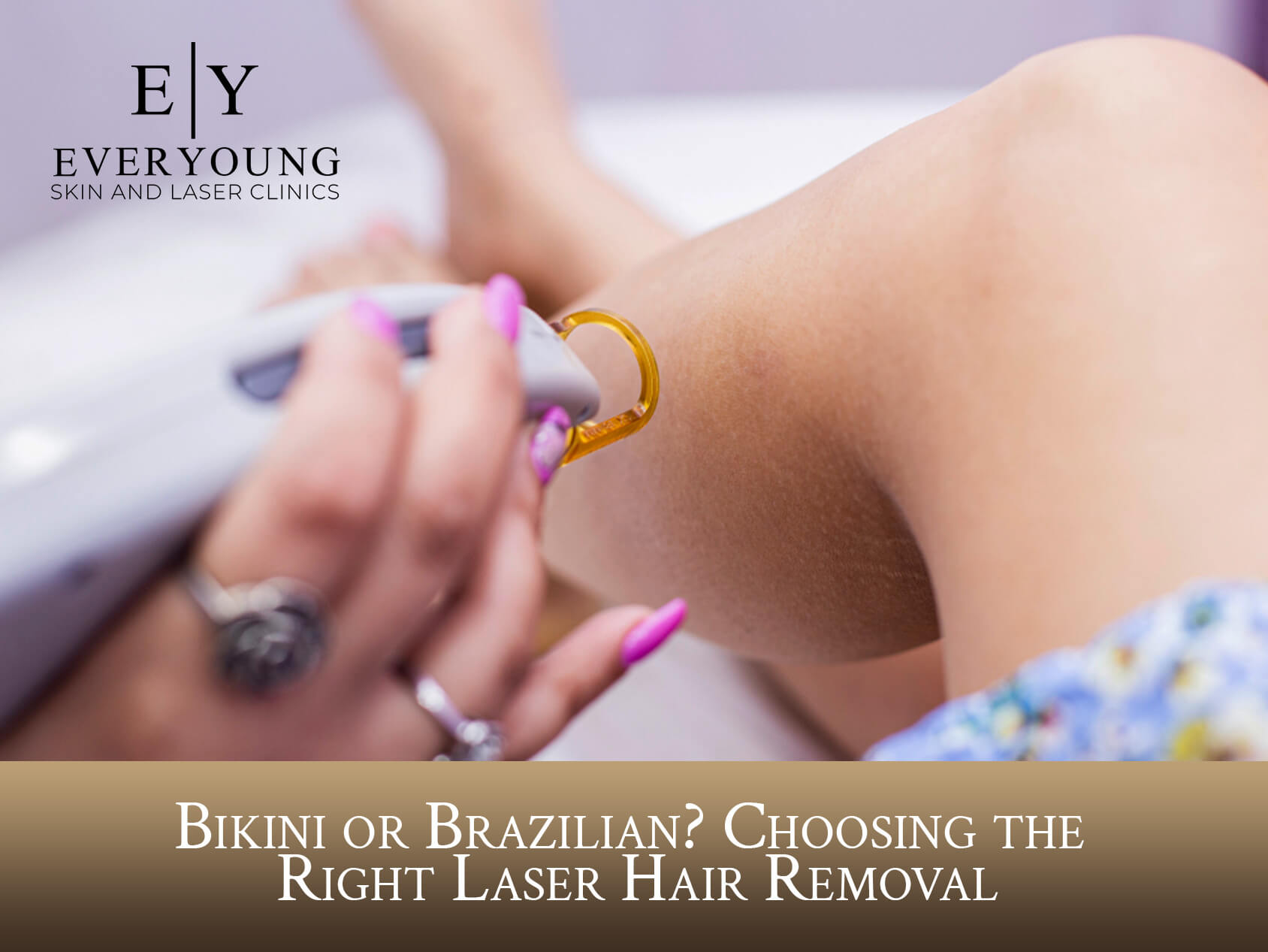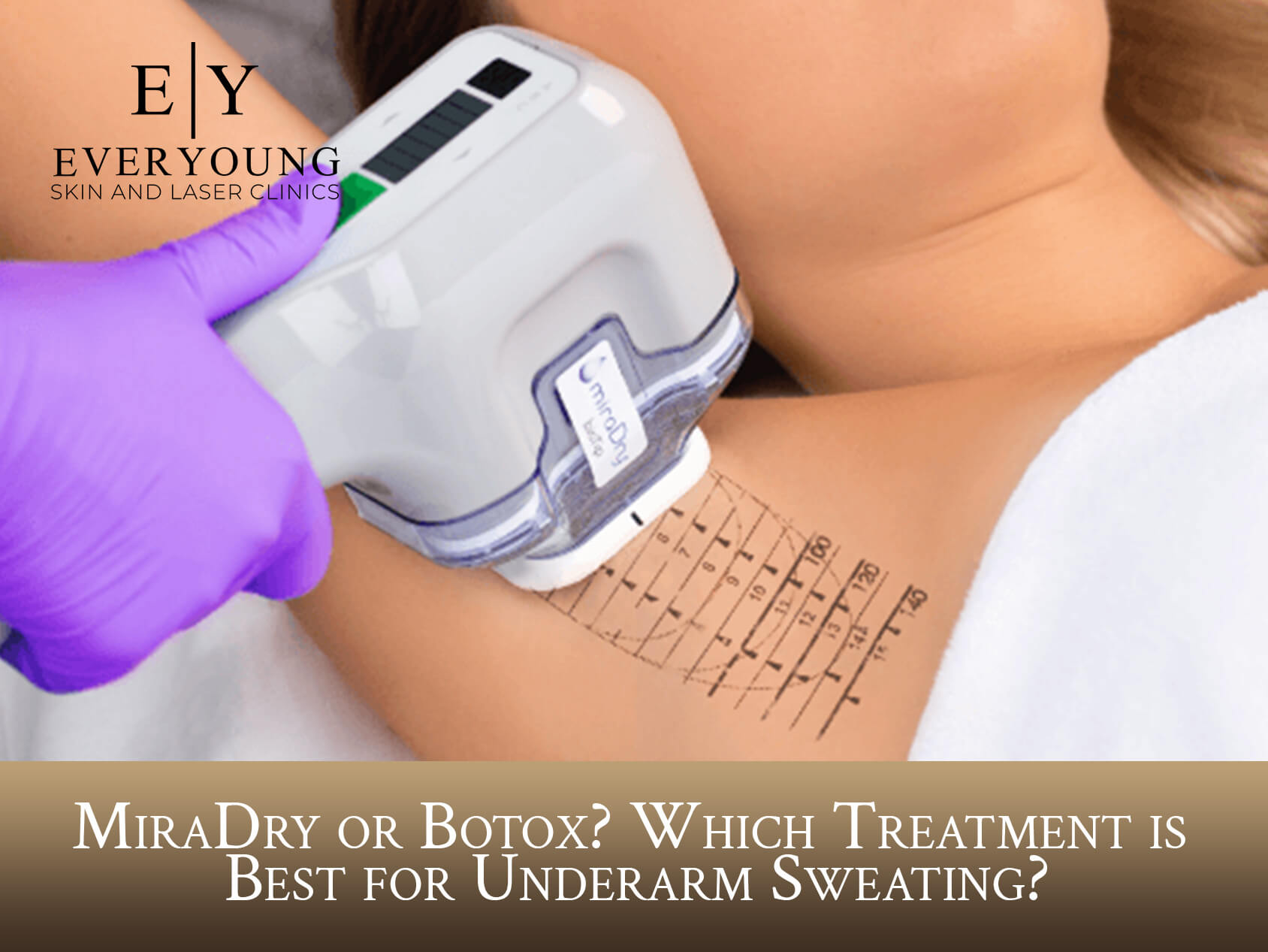Dealing with acne can be a frustrating experience, and finding the right solution takes a lot of work. Unfortunately, no one-size-fits-all approach to acne exists because everyone has different skin. That’s where a personalized acne-clearing routine comes into play. At EverYoung Laser and Skin Clinic, we understand the importance of a solid skincare routine. In this guide, we’ll help you create your personalized acne-clearing routine.
Understanding Your Skin
First, you should get to know your skin because your skin type determines the products and treatments that will work for your acne. Are you dealing with oily skin, dry patches, or both? Understanding your skin’s tendencies will help you make informed decisions. Here are the different skin types. Find the description that matches your skin to begin the process of establishing your acne-clearing routine.
Oily Skin
When the skin produces too much sebum (oil), you have an oily skin type. People with this skin type usually have enlarged pores and shiny complexions. The types of acne these people are at risk for include blackheads, whiteheads, and acne breakouts. Using oil-free or mattifying products combined with gentle cleansers is the best way to care for this type of complexion.
Dry Skin
Because it lacks moisture, dry skin usually feels tight, flaky, or rough. Those with dry skin are more susceptible to redness and irritation. Using hydrating cleansers and rich moisturizers can restore moisture to the skin, but be sure to avoid harsh products since they can further strip the skin of its natural oils.
Combination Skin
Combination skin is exactly what it sounds like a combination of oily skin and dry areas throughout the face. The T-zone (forehead, nose, and chin) is often shiny and oily, while the cheeks may feel dry or even normal. When it comes to combination skin, it’s all about maintaining balance by using the appropriate products for each area of the face to address the different problems. A gentle cleanser combined with a lightweight, hydrating moisturizer is usually sufficient.
Sensitive Skin
When exposed to certain ingredients or environmental factors, sensitive skin is vulnerable to redness, irritation, and discomfort. Harsh skincare products, fragrances, and extreme weather can cause irritation and redness. People with sensitive skin should opt for hypoallergenic and fragrance-free products to soothe and protect the skin barrier.
Normal Skin
Unlike its counterparts, normal skin is well-balanced. It’s neither too oily nor too dry. The skin has a smooth texture and a healthy, radiant appearance. People with normal skin can experience occasional blemishes, but reap the benefits of having minimal skincare concerns. A simple skincare routine with a gentle cleanser and moisturizer is recommended for normal skin.
Identifying Your Acne Type
There are many forms of acne, including whiteheads, blackheads, cystic acne, and more. Each type requires a slightly different approach to treatment. Identifying your specific acne type allows you to target the root of the problem. Whether you have blackheads or are experiencing painful cystic acne, knowing what you have is a solid start.
Here is the complete guide to acne treatment for you.
Whiteheads
Whiteheads (also called closed comedones) appear as small, pale spots on your skin’s surface. They arise when hair follicles become clogged with oil and dead skin cells. These non-inflammatory bumps remain sealed at the surface and do not have the swelling or redness that comes with other forms of acne.
Blackheads
Blackheads also stem from clogged hair follicles but their distinctive black or dark appearance is due to exposure to the air. Unlike whiteheads, these persistent spots remain open at the surface. Despite their deeper hue, they share a non-inflammatory nature, meaning they do not appear red nor have a bumpy surface.
Papules
The small bumps on your skin that are often pink or red are called papules. These inflammations are your body’s response to hair follicles being blocked with oil and dead skin cells. They can be sensitive to the touch but do not contain pus, and nearly everyone experiences some form of papule breakout in their lives.
Pustules
Pustules are what most people commonly think of as pimples. These red, inflamed bumps have white or yellowish heads filled with pus. Their presence can be hard to ignore, and their inflammatory nature sets them apart from the look of whiteheads and blackheads.
Nodules
Nodules are large, solid bumps that form deep beneath the skin’s surface and are often quite painful to the touch. They arise from severe inflammation and follicular blockage. Unlike other types of acne, nodules seldom come to a head which adds to the discomfort of their presence.
Cystic Acne
Cystic acne also forms beneath the skin’s surface and can be similar in appearance to nodules. However, these cysts will often feel softer or more malleable because they are filled with pus. They are characterized by deep inflammation and often erupt, leading to potential infection and scarring.
Cystic Nodular Acne
Merging the worst aspects of cystic and nodular acne, cystic nodular acne is recognizable because of the large, painful cysts and nodules. It is often excruciating, and devastating, and if left unchecked, it can cause severe scarring.
Pigmentation Issues (Post-Inflammatory Hyperpigmentation)
Acne lesions can sometimes leave behind darker spots or patches on the skin. Post-inflammatory hyperpigmentation (PIH) usually affects individuals with darker skin tones.
Scarring (Acne Scars)
Untreated acne can lead to various types of scarring – boxcar, icepick, rolling, and hypertrophic. Each type of scar has a different shape and texture but they can all affect a person’s self-esteem. There are treatments to mitigate the appearance of acne scars, but it is easier to treat acne before scars can form.
Choosing the Right Products
Cleansing is the cornerstone of any effective skincare routine. It helps remove dirt, excess oil, and impurities that can clog your pores. But not all cleansers are created equal. Depending on your skin type, you may need a gentle, hydrating cleanser or one with salicylic acid to exfoliate and clean out your pores.
Choosing the right skincare products is essential to your acne-clearing journey. Look for products labelled as non-comedogenic, meaning they won’t clog your pores. At EverYoung Laser and Skin Clinic, we recommend a range of trusted skincare product lines to support your acne-clearing goals.
Benzoyl Peroxide
Benzoyl peroxide is a great aid in your fight against acne. This over-the-counter topical treatment eliminates bacteria that are responsible for blocking the pores. Creams, gels, and washes often contain this ingredient, which is capable of treating inflammatory and non-inflammatory acne lesions. It might leave your skin a little dry and cause peeling at first, but your skin will heal naturally and be free of acne with time.
Salicylic Acid
Salicylic acid is a beta-hydroxy acid (BHA) commonly found in many over-the-counter acne remedies. The ingredients can easily unclog pores, eliminating both blackheads and whiteheads without issue. Cleansers, toners, and spot treatments contain this ingredient that’s perfect for combatting acne.
Topical Retinoids
Topical retinoids contain ingredients like tretinoin and adapalene that are great for your skin. Deriving from Vitamin A, these ingredients work together to unclog your pores, encourage cell turnover, and reduce inflammation. Available as creams, gels, or lotions, this is one of the top choices for mild to moderate forms of acne. They may cause some skin irritation, but the symptoms quickly subside.
Antibiotics
A dermatologist can prescribe topical antibiotics such as clindamycin to reduce inflammation and the bacteria that cause the formation of acne. In more severe cases, oral antibiotics such as doxycycline or minocycline may be prescribed. Regular check-ups will ensure your skin is looking brand new in no time.
Isotretinoin
Isotretinoin is one of the best oral medications a dermatologist can prescribe for severe acne. It works by inhibiting the production of sebum, which prevents your pores from becoming clogged. Some side effects can occur with this prescription, so speak with a physician to determine if it’s the right acne treatment for you.
Treatment Options
While over-the-counter products can work on some skin types, others may require professional treatment options. Topical treatments, laser therapy, and dermatologist-prescribed medications are available. A consultation with our skincare experts can help determine the most suitable treatment plan for your unique needs.
Carbon Laser Peels
Experience the transformative power of carbon laser peels, a treatment that diminishes acne and acne scars while concealing fine lines and wrinkles. This cutting-edge procedure uses heat to target deep-seated damage within the skin without damaging the surface. By eliminating imperfections and stimulating fresh collagen growth, this treatment works wonders. The laser’s heat inhibits oil production from the sebaceous glands, which reduces symptoms that cause acne and curbs inflammation.
Photodynamic Light Acne Laser Therapy
Photodynamic light acne laser therapy is a procedure where a specialized topical solution or gel containing a photosensitive compound is applied. After a designated absorption period, the afflicted area is bathed in laser light, unleashing reactive oxygen species (ROS) to target and dismantle specific cells and structures. It can eliminate bacteria, reduce oil production, and reduce skin inflammation, ultimately preventing future breakouts.
Blue Light Therapy
Discover the magic of blue light therapy – a safe and painless acne treatment using light to regulate excess oil and destroy acne-causing bacteria before it can trigger skin inflammation. This treatment gradually banishes pimples, blackheads, and whiteheads to enhance your skin’s appearance and significantly reduces the likelihood of future breakouts.
Lifestyle Factors
It’s not just about what you put on your skin, it’s also about what you put into your body. Diet, stress levels, and sleep patterns can all impact the condition of your skin. Here’s how maintaining a healthy lifestyle can complement your acne-clearing routine.
Diet
Your dietary choices impact acne development. Sugary foods, processed items, and dairy products may increase the risk of acne in some individuals. A balanced diet of fruits, vegetables, and whole grains may help improve skin health.
Hygiene Habits
Proper skincare and hygiene practices are crucial for preventing acne. Regularly washing your face with a gentle cleanser and avoiding harsh scrubbing can help keep your pores clear and reduce breakouts. Not removing makeup before bedtime can also lead to clogged pores and acne.
Stress
High-stress levels can trigger hormonal changes in the body, which may exacerbate acne. Stress management techniques such as meditation and relaxation exercises can help reduce stress-related breakouts.
Sleep Patterns
Inadequate sleep or irregular sleep patterns can disrupt hormonal balance and potentially lead to acne flare-ups. Aim for 7-9 hours of quality sleep each night to support overall skin health.
Smoking and Alcohol Consumption
Smoking and excessive alcohol consumption can negatively impact skin health. Smoking can reduce blood flow to the skin, making it more susceptible to acne and slowing down healing. Alcohol can dehydrate the skin and contribute to inflammation, potentially worsening acne symptoms.
Build a Routine
A good acne-clearing routine is all about consistency and patience. Let us guide you through establishing a daily regimen that aligns with your skin’s needs and adapts as your skin evolves.
Identify Your Skin Type
Understanding your skin type is the first step in selecting the right products and treatments. As mentioned above, common skin types include oily, dry, combination, and sensitive. Knowing your skin type helps you choose products that won’t aggravate your skin issues.
Consult a Dermatologist
Consulting a dermatologist is crucial if you’re struggling with persistent or severe acne. They can assess your skin, identify the type of acne you have, and recommend appropriate treatments. Dermatologists can provide expert guidance on prescription medications or in-office procedures if needed.
Choose Suitable Cleansers
A gentle, non-abrasive cleanser is the foundation of any skincare routine. Cleaning your face twice daily helps remove excess oil, dirt, and makeup that can clog pores. Look for a cleanser that matches your skin type, whether gel-based for oily skin or hydrating for dry skin.
Incorporate Acne-Fighting Elements
Ingredients like salicylic acid, benzoyl peroxide, and alpha hydroxy acids (AHAs) can target acne and unclog pores. Depending on your skin’s tolerance, gradually add these elements to your routine. Start with lower concentrations to minimize irritation.
Moisturize
Many people with acne-prone skin mistakenly skip moisturizing, fearing it will make their skin oilier. However, maintaining skin hydration is crucial to prevent dryness and irritation. Choose a non-comedogenic, oil-free moisturizer suitable for your skin type.
Sun Protection
Protecting your skin from harmful UV rays is essential, even if you have acne. Sunscreen prevents sunburn and shields your skin from potential post-inflammatory hyperpigmentation (PIH) caused by acne. Opt for a broad-spectrum sunscreen with at least SPF 30.
Consistency Is Key
Stick to your routine consistently. Acne treatments often take time to show results, so patience is essential. Avoid picking or squeezing acne lesions, which can worsen inflammation and lead to scarring.
Lifestyle Adjustments
Incorporate healthy lifestyle habits that support clear skin. Maintain a balanced diet, manage stress, get adequate sleep, and avoid smoking and excessive alcohol consumption. These factors can impact your skin’s overall health.
Track Your Progress
Keep a skincare journal to monitor how your skin responds to different products and treatments. Note any improvements or setbacks, and share this information with your dermatologist during follow-up appointments.
Adapt as Needed
Your skin’s needs may change over time, so be prepared to adjust your routine accordingly. Consult your dermatologist for guidance if you need clarification on specific products or treatments.
Seeking Professional Help
Sometimes, acne requires the expertise of professionals. We’ll help you recognize when it’s time to seek the guidance of our experienced dermatologists and skincare specialists. At EverYoung Laser and Skin Clinic, we provide personalized solutions tailored to your unique skin.
Embarking on a journey to clear, radiant skin begins with understanding your skin type, identifying your acne type, and crafting a personalized acne-clearing routine. At EverYoung Laser and Skin Clinic, we’re committed to helping you achieve your skincare goals. With the right knowledge and guidance, you can take charge of your acne and uncover the beautiful skin that’s been waiting beneath the surface.
Ready to start your personalized acne-clearing journey with EverYoung Laser and Skin Clinic? Contact us today to schedule a consultation with our skincare experts and take the first step toward achieving the clear, beautiful skin you deserve.



